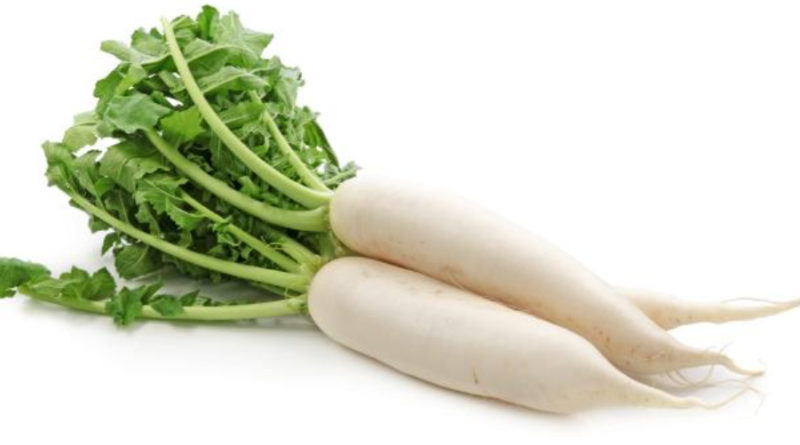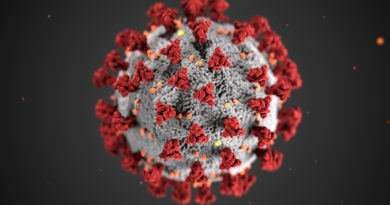Radish (Mooli): Benefits, Uses and Side Effects
Are you among those who do not like eating radish at all? If yes, then you must read this article. True, if you consume radish as a medicine, you can get rid of many serious problems related to the body. After knowing the benefits of radish in this article, your desire to eat radish may arise. Come, let us know how radish can prove beneficial for your health. Before that, read why radish is good for health.
Why is radish good for your health?
Why should you eat radish? It becomes necessary to know the answer to those who dislike radishes. Let me tell you that radish is included in those particular selected foods, which not only calms the appetite, but also takes care of overall health. This common-looking root is an important source of vitamin-C and folate. Apart from this, radishes are also rich in calcium and potassium, which act to control blood pressure. The magnesium present in radish helps the functioning of the brain and nervous system run smoothly. In addition, radish also contains a quantity of fiber, which is necessary for better digestive system. Know below how radish can help you for different types of physical problems.
Let us know in detail about the benefits of radish for health.
Benefits of Radish (Muli)
1. For cardiovascular health
Heart is an important part of the body, it is important to take special care of its health. The benefits of radish can be seen here. High blood pressure can lead to heart disease, while radish, rich in calcium and potassium, controls blood pressure. Apart from this, radish is also rich in nutrients like fiber, which is necessary for a healthy heart.
Radish is also a good source of folate, due to which it can work to stop the nervousness in the heart. Radishes are also rich in elements such as nitrate, which may reduce the risk of atherosclerosis. Atherosclerosis is a serious problem in which fat and cholesterol accumulate inside and outside of the artery wall.
2. Diabetes
The benefits of eating radish can also be seen for a very complicated disease like diabetes. Radish acts as an anti-diabetic. It has the ability to improve antioxidant and energy metabolism, reduce oxidative stress, control glucose, and reduce glucose absorption in the intestine. As we mentioned above, radish is a good source of vitamin-C and vitamin-C can be beneficial for diabetic patients. According to one report, vitamin-C can work effectively on insulin inhibition.
3. Kidney Stone
The benefits of radish have been seen to cure kidney stones. According to a report, radish can act as a way to get calcium oxalate (a type of kidney stone) out of the body.
4. Cancer
The benefits of radish have also been seen for prevention from fatal disease like cancer. Radishes belong to the family of cruciferous, whose compounds are converted to isothiocyanate as soon as they are mixed with water. According to one report, isothiocyanate has anti-cancer as well as heart-enhancing properties. Radish chemo may show preventive effect in case of breast cancer. It directly inhibits the growth of cancerous cells.
5. For Weight Loss
One of the advantages of eating radish is body weight control. If you are troubled by obesity, you can start consuming radish. It is a healthy food that has low fat and high fiber content. Fiber is a special nutrient, which is considered the most important element for weight loss. Fiber also effectively reduces obesity and the risks associated with obesity.
6. Liver Health
The benefits of radish do not end here; radish may be beneficial for liver health. According to a report, the properties of radish can play an important role in detoxifying the liver. Radish is rich in an element called glucosinolates, which works to maintain liver health. Scientific studies suggest that radish has been used in Unani and Indian traditional medicine to treat jaundice and other liver-related diseases.
7. Blood pressure
Blood pressure control is also among the advantages of radish. Radish is rich in minerals such as calcium and potassium and these nutrients play an important role in controlling blood pressure. According to a report, vitamin-C supplements can control systolic and diastolic blood pressure.
8. Constipation
Eating radish has many benefits too to overcome problems like constipation. This is due to the amount of fiber present in the radish. Fiber is counted among those special nutrients that work to keep the intestines healthy. Fiber is also necessary for problems like constipation, because it simplifies the process of stool drainage by making the stool soft.
9. Leucoderma
Radish has many properties for the skin too. Leucoderma is a skin problem in which the skin becomes white spots and loses its natural color. This disease is also known as vitiligo. You can use radish to treat leukoderma. Radish is rich in antioxidants and vitamins (vitamins A, C and E), which can work to cure this skin disease.
10. Increases immunity
You can take radish to increase the body’s immunity. It is a healthy food item, which is full of vitamin-C. According to one report, vitamin-C can work to strengthen the immune system and relieve problems like colds. In addition, radishes are rich in nutrients such as vitamin B6, E, A, zinc, iron and selenium. All these elements work to increase immunity.
11. Aids in digestion
Here we can see the role of fiber present in radish. Fiber is a special nutrient that helps digest food and relieves constipation problems.
12. Osteoarthritis
Osteoarthritis is a type of arthritis that targets the hip, knee, neck and lower back or joint of hands. You can take radish to get rid of it. Radishes are rich in poly saturated fatty acids, which have a positive effect on arthritis. In addition, radishes also contain vitamin-K, which can be beneficial for metabolism in cartilage (a soft tissue found in many parts of the body, including the ankles, elbows, and knees). It promotes the growth of cells and helps in their proliferation.
Radish Nutritional Value in Hindi
13. For Skin
Radish has many benefits for the skin. It is rich in vitamin C, which acts as an effective antioxidant for the skin. Vitamin acts to increase the collagen in the skin. It also makes the skin white, protects against the sun’s harmful rays and reduces the effects of aging.
After knowing the benefits of eating radish, let us now know about the nutrients present in radish.
Radish Nutritional Value
Nutrient Amount Per 100 Grams
Water 95.27g
Energy 16kacl
Protein 0.68g
Carbohydrate 3.40g
Total lipid (fat) 0.10g
Fiber, Total Diet 1.6g
Sugar, total 1.86g
Minerals
Calcium 25mg
Iron 0.34mg
Magnesium 10mg
Phosphorus 20mg
Potassium 233mg
Sodium 39mg
Zinc 0.28mg
Vitamin
Vitamin C 14.8mg
Thiamine 0.012mg
Riboflavin 0.039mg
Niacin 0.254mg
Vitamin-B6 0.071mg
Folate, DFE 25µg
Vitamin-B12 0.00µg
Vitamin A, RAE 0µg
Vitamin A IU 7IU
Vitamin E (alpha-tocopherol) 0.00mg
Vitamin D (D2 + D3) 0.0µg
Vitamin D0IU
Vitamin-K (phylloquinone) 1.3µg
Lipid
Fatty acid, total saturated 0.032g
Fatty acid, total monounsaturated 0.017g
Fatty acid, total polyunsaturated 0.048g
Fatty acid, total trans 0.000g
Cholesterol 0mg
After knowing the properties of radish and the nutritional elements present in it, let us know how to use it.
How to Use Radish (Mooli)
You can consume radish in various ways. Know below some best ways to consume radish:
- With food you can eat radish as raw.
- You can eat and eat radish vegetables, just like you make green vegetables every day.
- You can make radish pickle.
- You can also make and drink radish soup.
- You can eat it by making greens of radish leaves.
Radish for skin
- Remove the juice of a fresh radish.
- Now apply this juice on the face.
- After 20 minutes wash the face with cold water.
- To remove dirt and pimples etc. from the face, remedy it twice a week.
Note – Those whose skin is sensitive, use radish juice only after consulting a dermatologist.
After knowing the benefits of eating radish and how to use it, now let us know the disadvantages of radish.
Side Effects of Radish
Radish is a beneficial vegetable, which can work to get rid of various problems, but excessive intake of it can also harm the body. As we said that radish is rich in vitamin-C and excess of vitamin-C in the body can cause the following problems:
- Abdominal pain or burning sensation
- Diarrhea
After knowing so many benefits of radish, now you should make up your mind for regular consumption. If you are suffering from any disease mentioned in the article, then you should consume radish as a medicine. There may be some side effects during its use, in which case you should not panic and contact the doctor. Hope you liked this article.



